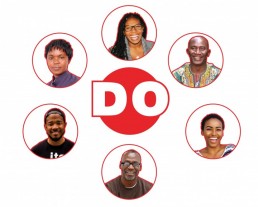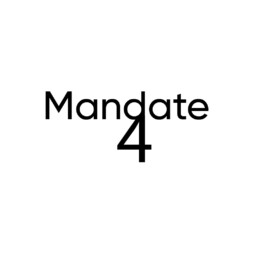AD 2050 / Nigeria's est. population- 429 million / Africa's est. population- 2.5 billion.
In the “Goalkeeper Report,” an annual publication by the Bill and Melinda Gates Foundation in 2018, it was projected that Nigeria’s population would reach approximately 429 million by the year 2050. The forecast also revealed another astonishing prediction – Africa’s population is expected to surge from 1.2 billion to over 2 billion during the same period. These figures underscore the urgency for thoughtful planning and action to address the challenges and opportunities that lie ahead.
THE URGENCY
The projected increase in population, coupled with high poverty rates, presents significant challenges for Nigeria and the entire African continent.
If the current trajectory continues, with the Nigerian population doubling to 429 million by 2050, it is estimated that over 152 million Nigerians will be living in poverty. This is a distressing statistic that demands immediate intervention and efforts to address poverty alleviation and social welfare.
Similarly, Africa’s population reaching over 2 billion by 2050, with 86% of the world’s poorest living on the continent, is a deeply concerning prospect. Such circumstances could exacerbate frustration, lead to rising unemployment, and intensify the existing challenges faced by Nigeria and other African nations.
The decline in demand for traditional income sources, like oil, and the global push for renewable energy may pose additional economic hardships for African countries that have heavily relied on these resources. The surge in nationalism and the tightening of borders could further limit opportunities for emigration, leaving people with fewer options to seek a better life elsewhere.
In light of these projections, it becomes crucial for both national and international stakeholders to collaborate and address these pressing issues. Sustainable development initiatives, poverty alleviation programs, job creation, education, and healthcare improvements are some of the vital areas that require attention. Finding innovative solutions and fostering inclusive economic growth will be critical to mitigating the potential challenges ahead and ensuring a brighter future for Nigeria and the African continent as a whole.
THE OPPORTUNITY
Absolutely, the projected population explosion indeed presents a remarkable opportunity for the continent if the right measures are taken. A larger population inherently indicates a vast consumer market, and Nigeria, as Africa’s most populous country, is predicted to be among the world’s top ten economies by 2050. The GDP estimates range from $3.3 trillion to an astounding $6.4 trillion, a significant leap from its current GDP of around $500 billion. Additionally, the combined GDP of West Africa, East Africa, Central Africa, and Southern Africa is projected to reach an impressive $29 trillion by 2050.
Given these projections, the crucial question to address is, “How can we ensure that this impending population boom becomes a positive force for the entire continent, rather than exacerbating challenges?”
PERSPECTIVE IS EVERYTHING.
To gain insight into how to approach the future, I journeyed down memory lane to the ’90s, particularly the late ’90s and early 2000s in Nigeria. During that period, while many saw limitations in the now-defunct Nitel and our inadequate communication infrastructure, hindering economic growth, there were visionary companies like MTN and Globacom that saw things differently.
Instead of being deterred by challenges such as corruption, government bureaucracy, scarcity of talent, and financial risks in a nation transitioning from military rule, MTN and Globacom identified a market opportunity waiting to be tapped. They saw the growth potential and seized the chance to establish themselves in the telecommunication industry.
Fast forward to July 2019, and these companies are reaping the rewards of their foresight, generating billions in revenue despite the challenging business terrain. Looking ahead to 2050, there will undoubtedly be new success stories akin to MTN and Globacom.
The question arises for me is: Can we adopt a similar visionary approach and identify opportunities in the face of challenges? By learning from the past and being proactive in our endeavours, Can we aim to position ourselves and the continent to seize the future and unlock potential?
It was at this moment that it dawned on me that;
Perspective will be a differentiating factor as we race toward the future. If we want to achieve prosperity and unlock the abundant opportunities that Africa has to offer, We will need to start approaching the problems facing the continent as market opportunities.
We will need to see Nigeria and the entire African continent for what it is; a gold mine buried deep into the ground, where only the brave dare dig and, in turn, reap the rewards.
IF YOU DECIDE TO APPROACH YOUR ENGAGEMENT WITH AFRICA FROM THIS UNIQUE PERSPECTIVE, MY QUESTION TO YOU IS;
What comes to mind when considering the following issues affecting the continent?
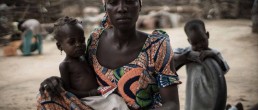
Poverty and inequality
With over 1.5 billion people in Africa in need of solutions to uplift their livelihoods and lift the impoverished out of poverty, the question remains: What will you DO?
By 2050, if no action is taken, Africa will house 86% of the world’s poorest population. For those with insight, this presents a market opportunity. The reality is that in Africa, there is a significant population of people eager to uplift themselves from poverty. This openness makes them receptive to innovative solutions that can enhance their quality of life, provide better access to education, healthcare, financial services, and create new economic opportunities. Empowering these individuals can lead to meaningful impact, enabling them to earn a living and improve their livelihoods.
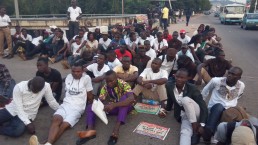
Unemployment
With over 1.25 billion Africans seeking employment opportunities, how will you respond to this pressing challenge?
While many people tend to focus on Africa’s labor market, which is plagued with skill deficits and increasing unemployment rates, it’s essential to recognize that by 2050, Africa will be home to 1.25 billion working-age individuals. If you share my perspective, you’ll see this as a tremendous market opportunity. This means there are 1.25 billion people who are receptive to innovative solutions that can enable them to work and earn a living.
The reality is that as a continent, Africa has the potential to become a major exporter of human resources, a provider of a digital workforce, and a manufacturing hub that can cater to the world’s needs. Embracing this potential and harnessing the talents of this vast workforce can lead to transformative economic growth and global competitiveness.
For entrepreneurs and visionaries, this presents a chance to tap into this market and offer solutions that can empower and uplift millions of people, creating a win-win situation for both business growth and societal advancement. With the right approach and innovative solutions, Africa can position itself as a significant player on the global stage, leveraging its abundant human resources to shape a brighter future for its people and the world.
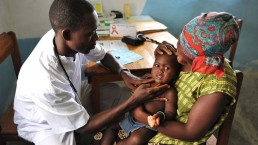
Health Care
In Africa, a $35 billion market opportunity in healthcare awaits your attention. How will you seize this promising opportunity?
While it’s true that many people tend to focus on the distressing news of millions of lives lost each year in Nigeria and Africa due to our inadequate healthcare system and the absence of a functional universal healthcare access mechanism and essential infrastructure, if you share my perspective, you’ll see this as a compelling market opportunity. This is because the growing demand for innovative solutions to increase healthcare access, reform the sector, and revitalize our healthcare infrastructure is evident.
According to Goldstein Research, Africa’s healthcare services industry is valued at an impressive $35 billion. This vast market holds the potential for visionary entrepreneurs and healthcare pioneers to make a significant impact while addressing critical healthcare challenges. By offering innovative and accessible healthcare solutions, we can not only save lives but also drive substantial growth in this sector.
Investing in healthcare technology, telemedicine, community-based care, and preventive health initiatives can pave the way for transformative change and substantial returns. By proactively addressing the pressing healthcare needs of Nigeria and Africa, we can contribute to better health outcomes, improved well-being, and a thriving healthcare ecosystem that benefits millions of people in the region. This $35 billion opportunity is more than just financial gain; it is a chance to make a positive and lasting impact on the lives of individuals and the overall health of our continent.

Education
Education represents an $18 billion market opportunity in Sub-Saharan Africa, How will you respond to this immense demand and contribute to shaping a brighter future for the next generation?
In Africa, the magnitude of the educational challenge is evident with 263 million out-of-school children, and the constraints of our current tertiary education institutions that struggle to cope with the overwhelming demand for further education. This pressing reality highlights the urgent need for visionary leadership and transformative ventures that can address this issue head-on.
The growing demand for innovative solutions to increase access to quality education has never been more apparent. We must make strategic investments and enact educational reforms that align with the demands of the modern era. By rejuvenating our educational infrastructure and updating curricula to reflect the evolving needs of society, we can better prepare the younger generation for the challenges and opportunities of the future.
According to recent data, consumer spending on education in Nigeria alone reached an impressive US$9.2 billion in 2016, with expectations to surge to US$10.9 billion by 2021. These figures underscore the immense potential for impactful initiatives that can address the educational needs of the continent and create a thriving market opportunity.
Investing in technology-driven learning platforms, skill development programs, scholarships, and teacher training can play a pivotal role in bridging the education gap and fostering a knowledgeable and skilled workforce. With such a vast number of children and youths in need of educational services, the impact of our actions can extend far beyond financial gains, touching the lives of millions and empowering future generations.
As we embark on this mission, our collective efforts can lead to transformative change, making quality education accessible to all, and laying the foundation for a more prosperous and inclusive Africa.

Energy and Climate Change
Africa is in need of energy and climate change solutions. What will you do?
Africa is blessed with an abundance of valuable natural resources, making it a potential powerhouse in the energy sector. With plentiful sunshine, flowing rivers, and rich deposits of natural gas, the continent offers a wealth of opportunities for sustainable energy solutions. Africa boasts the highest solar energy potential globally, enjoying an average of 325 sunny days per year. Additionally, its hydroelectric potential is estimated to reach over 1,750 terawatt-hours (TWh) annually.
Despite these valuable resources, around 580 million people in Sub-Saharan Africa still lack access to electricity, underscoring the critical need for energy solutions. Furthermore, Africa’s significant natural gas deposits make it a valuable resource for power generation and energy diversification.
The demand for visionary leadership in both the public and private sectors, along with innovative businesses, has never been more crucial. Focusing on renewable energy, smart grid technologies, energy efficiency, and sustainable energy infrastructure development can play a transformative role in addressing Africa’s pressing energy challenges.
To achieve a steady, reliable, and sustainable energy supply for all Africans, it is imperative to implement energy reforms, promote clean energy policies, and foster private sector investments.
The reality is if we can harness Africa’s vast energy potential we can pave the way for a greener and more prosperous future for everyone in in the continent.

Governance, Transparency and Accountability.
Africans eagerly await leaders like you to step up and run for political office, design policies and innovative solutions that, bring positive change and improvement to their lives.
The political and governance landscape in Africa is currently facing significant challenges, which have contributed to poor citizen engagement and bad governance. Corruption has become deeply entrenched and widespread across all levels of government, leading to a lack of trust in public institutions and a sense of disillusionment among the people. Furthermore, there has been a worrying rise in ethnic and religious sentiments, often exploited by opportunistic politicians, leading to division and tension within societies.
In the face of these complex issues, there is a growing realization that the continent needs a new generation of leaders who can rise above divisive politics and unite the nation. These leaders must possess a deep commitment to democracy and be genuinely dedicated to serving the people’s interests rather than their self-interests or those of a select few. Will you be this leader?
Unlocking Africa’s potential also demands innovative solutions to enhance accountability and citizen engagement. Technology can play a significant role in this regard. E-governance initiatives can promote transparency by providing easy access to public information, budgets, and government activities.
Education and awareness campaigns are essential in fostering an informed and engaged citizenry. Promoting civic education, citizens can better understand their rights and responsibilities, leading to more active participation in the democratic process. Grassroots organizations and civil society need to be strengthened and supported as they play a crucial role in representing the interests of marginalized communities and advocating for transparent governance. In light of this realities what do you see and what will you do?

Economy, Trade & Financial Inclusion
In Africa, a $29 trillion economy is about to be birthed. What will you do?
By 2050, Africa’s combined GDP is projected to reach an impressive $29 trillion, while Nigerian consumers spend approximately $330 million annually. With Nigeria expected to be among the world’s top ten economies by 2050, boasting a GDP of $3.3 trillion, the demand for solutions that enhance ease of doing business, grant access to global markets, capital, and a skilled workforce is bound to surge.
To thrive in this dynamic landscape, businesses will require innovative solutions to collect and analyze big data, drive productivity, and effectively connect with new customers. Embracing advanced technologies and cutting-edge strategies will be instrumental in staying competitive and capitalizing on the vast opportunities that this growth presents.
As Africa’s economic potential expands, the need for forward-thinking entrepreneurs and businesses to shape the future and capitalize on the immense market potential becomes increasingly evident. By offering solutions that cater to the evolving demands of businesses, we can fuel economic growth, foster innovation, and pave the way for a prosperous future for both Nigeria and the entire continent.
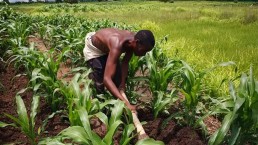
Agriculture & Food Security
Over 2 billion Africans with a combined buying power of over 1 trillion dollars need you to feed them, what will you do?
Africa’s agriculture and agribusiness markets are projected to surpass one trillion dollars by 2030, while the population is expected to rise to 2.5 billion by 2050. This presents a significant opportunity for businesses with innovative solutions to address various critical challenges in the agricultural sector.
The growing demand centers around solutions that can enhance crop yield and livestock production, reduce food wastage, ensure the affordability of agricultural products, facilitate farm mechanization, enable efficient exportation and distribution of farm produce, and provide valuable data and intelligence to improve farm performance. Additionally, there is a pressing need to tackle the impending effects of climate change on agriculture.
As the agricultural landscape evolves, the role of technology, research, and sustainable practices becomes increasingly vital. Businesses that can adapt and offer solutions to these diverse challenges will not only thrive in this burgeoning market but also contribute to ensuring food security and economic prosperity for the continent.
By embracing innovation and collaborating with various stakeholders in the agricultural value chain, we can shape a thriving agribusiness ecosystem that addresses pressing issues, sustains growth, and uplifts the livelihoods of millions across Africa. The future of agriculture holds immense potential, and it is up to you to seize this opportunity and create a positive impact for generations to come.

Housing & Infrastructure
Africa needs over 20 million housing units over the next 20 years, What will you do?
Africa is currently confronted with a significant housing deficit, requiring four million housing units annually to meet the region’s housing needs adequately. Nigeria, in particular, faces the daunting challenge of accommodating rapid population growth and urban migration, necessitating approximately one million additional housing units annually for the next two decades.
This escalating demand highlights the urgency for strategic urban housing development projects and innovative solutions to address the diverse housing requirements, particularly for the low-income demographic. Bridging the housing gap not only promotes social welfare but also fosters economic development and stability.
Can you tackle this pressing issue and drive collaborative efforts between the public and private sectors? There is a need for skilled urban planners, architects, and developers to develop sustainable housing solutions that incorporate energy-efficient designs and affordable financing options to meet the needs of a rapidly expanding population.
F

Transportation and Mobility
In Africa, $157.3 billion is on the table if you can figure out efficient ways to move people and goods in Africa. What will you do?
Nigeria’s GDP from transport is projected to grow to around N269 billion in 2020. According to the Analytica report, logistics spending in Africa by manufacturers and retailers will have increased to $157.3 billion by the end of 2016. The transport sector is a goldmine sector with huge growth potential because people and trade will always occur. There will be an increase in demand for logistics companies that will see the quick delivery of goods from sellers to buyers and transport services across all modes (road, rail, river, lake, air and ports). Significant investment in transportation infrastructure will be needed.

Innovation & Technology
Over 747 million smartphone users are waiting for startups/technology innovations that can improve their life. What will you do?
The technology adoption rate across the continent is on the rise. There are 747 million SIM connections in sub-Saharan Africa, representing 75% of the population. In Nigeria, approximately 115 million Nigerians are online, which keeps rising. In 2017, $9.14 billion was spent by Nigerian subscribers to purchase airtime credit to access data and voice services on their mobile devices. The demand for technologies that leverage artificial intelligence and big data to provide solutions that can improve our development indices across healthcare, agriculture, e-commerce, finance, media, infrastructure, education, and energy will be on the rise.

Culture and the Creative Industry
Every year over N239b is up for grabs in Nigeria’s creative industry, by 2050 over 2billion Africans will need you to entertain them or provide solutions that make this possible. What will you do?
Nigeria’s creative industry accounted for 2.3 per cent, approximately N239 billion of the nation’s GDP in 2016. There is an increasing demand for solutions that tackle piracy & distribution, provide access to the global market, credit facilities, empower talents with high-end skills and provide a conducive business environment.
WE NEED EVERYONE TO UNLOCK THE OPPORTUNITIES THAT AFRICA HAS TO OFFER.
I am of the opinion that there are four key drivers that will change the fortune of Nigeria and the entire African continent. They are;
We need People (You and Me)
Never underestimate the power of dreams and the influence of the human spirit. The future will be shaped by people who see opportunities where others see challenges. We will need more people to rise to the occasion and take on the tough problems facing their nation and the continent, doing so regardless of their background, age, qualifications, status, or limitations. The truth is that individual action holds the true power to build the content of our dreams; that’s why we will need advocates, leaders, creators, entrepreneurs, founders, citizens—everyone, really—to commit to positively shaping the future of this continent, one community at a time.
We need Businesses & Investors
We will need companies that embrace their primary role in solving problems and making a positive difference in people’s lives. They must prioritize sustainability and consider the impact of their business ventures on the well-being and future of communities and nations. Moreover, we will require more investors who are willing to take bold bets on the continent’s future.
We need Governments & Institutions
Governments and institutions play a high-impact role in shaping future development outcomes, utilizing instruments such as policy, governance, accountable investments, and partnerships for the SDGs. To achieve this, we require more public officeholders who understand that their primary responsibility is to improve the livelihoods of those who elected them. Additionally, we need civil servants willing to go the extra mile in utilizing their positions for the greater public good. Moreover, political parties must hold their members accountable to fulfil the mandates that got them into office and ensure that individuals with the right expertise are assigned to appropriate portfolios.
We need Non-Profits & IDAs
Non-profit organizations and International Development Agencies (IDAs) are vital in shaping the future, particularly in driving interest and action for the SDGs. To make a significant impact, non-profits must break away from the status quo and adopt innovative resource utilization and engagement approaches. Prioritizing transparency, local empowerment, and collaboration will enhance their effectiveness in achieving sustainable change. These organizations can play a crucial role in creating a more equitable and sustainable world.
TRUTH? THIS IS AN UPHILL TASK. THE JOURNEY TO UNLOCKING THE POTENTIAL AND SHAPING THE FUTURE OF THE AFRICAN CONTINENT IS NOT FOR THE FAINT HEARTED,
Africa faces numerous challenges, and simply having a fresh perspective will not make them disappear. These challenges are very real, with devastating effects on millions of people. Thousands of companies that were once hopeful ventures have been forced to close, leaving investors at a loss. The continent’s harsh socio-economic realities have stifled hopes and dreams, leading to the failure of countless entrepreneurs and investors.
To achieve success in this complex environment, it will require:
YOU WILL NEED COURAGE, PATIENCE, CLARITY OF PURPOSE, STRENGTH IN YOUR CONVICTION AND STRATEGIC DISCIPLINE.

MY ROLE AS A CHANGEMAKER
As I continue to evolve, I am increasingly convinced that my life’s work will center around aggregating all of my talents and experiences in Innovation, Strategy, Technology, Development, Media, Marketing, and Communications to shape the future.
As an entrepreneur, my passion lies in starting new ventures and leveraging existing ones to provide solutions and innovations that drive both economic and social impact on a large scale. My goal is to support individuals, businesses, non-profits, and governments in their endeavors to shape a better future and ensure their success.
I have begun expressing this core mission through the following avenues:
Endgame is an Integrated Strategy, Technology, Marketing, and Creative Agency committed to working for innovators, visionaries, and changemakers. They are the People, Businesses, Institutions & Non-Profits working to positively shape the continent’s future; Endgame’s mission is to enable them to grow, succeed, increase their reach and impact, achieve their objectives, and thrive in today’s competitive landscape.
DO is a Non-Profit Startup on a mission to build a critical mass of 1billion+ people, taking personal and collective action for a better future for Africa one action and community at a time. To deliver on our mission, we inspire, empower and mobilise action for sustainable development.
Mandate4 is a comprehensive and dynamic full-service nation-building and good governance Agency dedicated to leveraging Strategy, technology, media, communications, capacity building, organizing, research, data, advocacy, and policy to strengthen democracies and ensure they deliver positive outcomes for citizens, communities, and nations.
SUMMARY
Considering the magnitude of the work and the stakes involved, one thing is certain. Amidst the numerous challenges facing Africa, a sustainable future is attainable, but it will require the collective effort of all stakeholders. Success in shaping this future is possible, as we have seen in other great countries, where the decisions made by past generations laid the foundation for their progress.
The realities we face today result from the decisions made by our forefathers, highlighting the significant impact of past actions on the present. Thus, our actions today will shape the future for the coming generations.
Given this understanding, I believe there is both a sense of urgency and a remarkable opportunity for those who are discerning and visionary. While the challenges demand immediate action, there is also the potential for significant progress and success for those who make informed and strategic decisions.
In conclusion, the path to a sustainable future for Africa requires the active participation and dedication of everyone involved …
And this is why ...
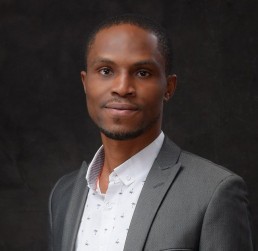
About the Author
Century Favour is an Entrepreneur, Strategy, Technology, Marketing and Creative professional passionate about driving economic & social impact. Through his ventures (Endgame The Strategy Company, Do take action & centuryfavour.com) he works to ensure that People, Businesses, Governments & Non-Profits grow, succeed, achieve their strategic objectives, drive sustainable development and positively shape the future of the people & communities they serve.

About the Author
Century Favour is an Entrepreneur, Strategy, Technology, Marketing and Creative professional passionate about driving economic & social impact. Through his ventures (Endgame The Strategy Company, Do take action & centuryfavour.com) he works to ensure that People, Businesses, Governments & Non-Profits grow, succeed, achieve their strategic objectives, drive sustainable development and positively shape the future of the people & communities they serve.

